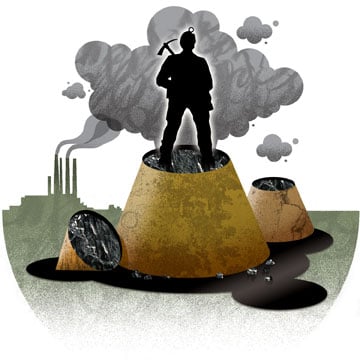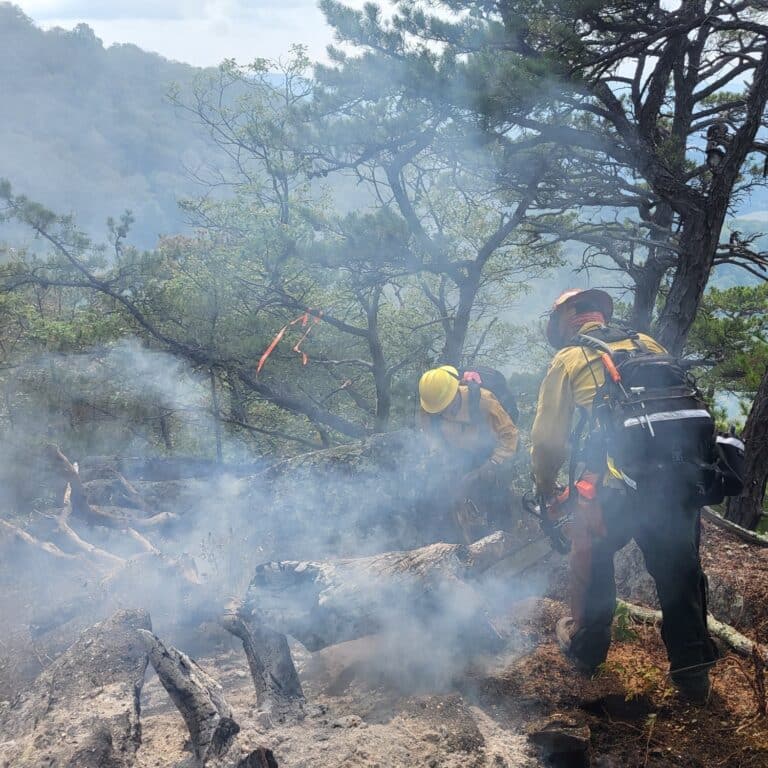Coal provided jobs and income for several generations when little else would. While it would be great to phase out its use, the money it still provides to thousands of families will be hard to replace anytime soon.
—Mark Wenger, Williamsburg, Va.
——————-
I would love to answer this question with an unequivocal “no,” but to do so would be to deny the incredible importance that coal has played in the lives of my fellow citizens of southwest Virginia. It would ignore the reality that coal from these hills fired the forges that helped create the steel girders that frame the highrises housing so many coal naysayers enjoy today. And, most importantly, it would dishonor the memory of my grandfather, who was an engineer and superintendent for a coal company here in Wise County and provided for my father’s family. I wholeheartedly understand, and mourn, the drastic effects of coal mining on our mountains, and I look to the future when coal isn’t a necessary ingredient in energy production, with great anticipation. However, knowing the role that coal has played in Appalachia’s history, the only honest answer for me is yes. —Ernie Slemp, Wise, Va.
Do mountains grow back? If not, then coal has not helped. Over 470 named mountaintops have been leveled for coal mining, and many more miles of streams have been filled or polluted from associated blast material.
—Daryl Johnson, Charleston, S.C.
——————-
Many of the old coal towns have closed or are impoverished, with the residents in poor health. Coal was a brief boon to people years ago, but the long-term negative effects that they still experience today far outweigh any short-term benefits. We need to move away from the fossil-fuel age and toward a more productive and less environmentally harmful energy source. Unfortunately because of constantly increasing population growth, the solutions are really just compromises, so we must look at what hurts people and the environment the least. Maybe nuclear energy sources are a better way than coal, as they have pretty good track record over a half-century of use. But coal certainly isn’t the answer.
—Gregory Rowley, Richmond, Va.
——————-
Any resource extraction industry that pollutes in every stage of its lifecycle is not good for Appalachia. Coal pollutes rivers and groundwater when it is blasted and scraped out of the ground; it pollutes when it is transported hundreds of miles by diesel truck and train; and it pumps mercury, sulfates, and lead into our air when it is burned. While it has given short-term, black-lung-type jobs and has provided energy for our power-hungry economy (that’s you and me), it has done far more harm than good. Until people change their consumptive habits, coal will continue to “help” Appalachia. One of the easiest ways to reduce your consumption is to install energy conserving technologies in your home. If every homeowner took the simple step of increasing air sealing on their ducts and in the thermal envelope of their home with mastic and caulk, valuable conditioned air would not seep out of the home and we would ultimately use less coal—just one of the hundreds of things homeowners could do to help reduce our dependence on local coal. —Lela Stephens, Asheville, N.C.
The short of it is that money trumps the environment–and the poor valley folks that are getting dumped on.
Big money goes to mine owners, the coal industry, and the state in the form of taxes and severance fees.
The long of it is that, a century from now, people will look at the horrible scars on the mountains and wonder how others could have been so short-sighted in allowing that to happen.
—John Lefebure, Ringgold, Md.
——————-
On any objective analysis, the answer must be yes. Critics muddy the issue. In their dislike of coal mining, they ironically blame one of the few valuable resources in the region for the stunted economic growth resulting from the very dearth of resources there. It’s as if someone were to blame doctors for the sick people we find in hospitals.
A West Virginia University Center for Business and Economic Research study assessed the economic impacts on the state’s economy from the so-called Haden decision that would have made mountain top mining uneconomic for the state. The decision was subsequently overturned on appeal, but the economic impact it would have had—15,000 jobs lost, and a $2.4 billion hit to aggregate state economic output—suggests the contributions that the coal industry makes to the region.
Note too the study’s scathing assessments of the view that tourism could somehow replace coal as a viable economic activity: “absurd” is the reaction from economists who’ve looked closely at this issue. What the original study and an update both underscore is not only coal’s net contributions to West Virginia’s economic welfare, but the impacts to “non-coal” counties if coal mining were to stop. It’s particularly foolish and possibly heartless for coal’s critics to so cavalierly dismiss this severe economic impact that would fall hardest on coal counties.
—Luke Popovich, Vice President, National Mining Association









